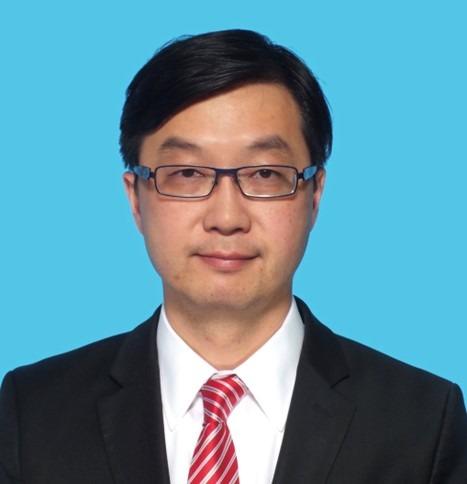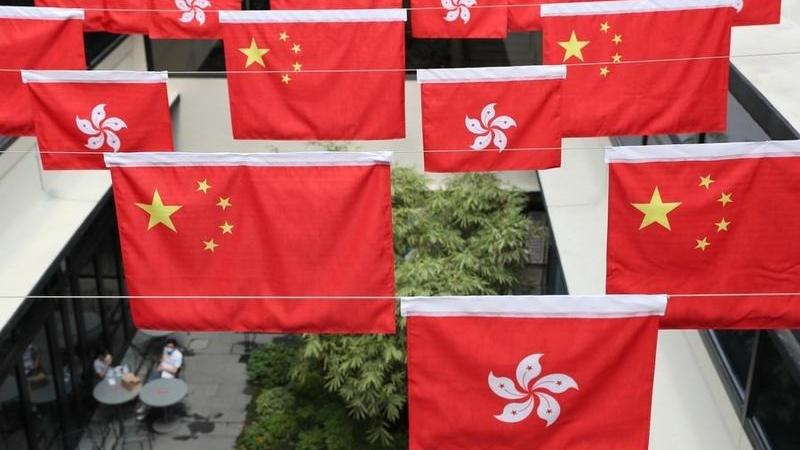Editor’s note: As Hong Kong marks the 25th anniversary of its return to the motherland, China Daily has invited prominent leaders from various sectors in the community to give their views in our “Anniversary Talks” series on the changes that have taken place in the city since 1997, as well as their visions for the future.
Henry Ho Kin-chung, founder and chairman of Hong Kong think tank, One Country Two Systems Youth Forum, says the “one country, two systems” model has ensured the SAR’s success in the past 25 years, and offered tremendous opportunities for the city to scale new heights in the next stage of its development.
 This undated file photo shows Henry Ho Kin-chung, founder and chairman of Hong Kong think tank, One Country Two Systems Youth Forum. (PHOTO PROVIDED TO CHINA DAILY)
This undated file photo shows Henry Ho Kin-chung, founder and chairman of Hong Kong think tank, One Country Two Systems Youth Forum. (PHOTO PROVIDED TO CHINA DAILY)
1.This year commemorates the 25th anniversary of Hong Kong’s return to the motherland. How do you see the SAR’s development in the past 25 years?
![]() The city has thrived in the past 25 years under the “one country, two systems” policy. It is an innovative solution to resolve the issues of Hong Kong, Macao and Taiwan. Hong Kong had gone through a smooth reunification in 1997. With the support of the central government, Hong Kong has enjoyed a high degree of autonomy, retained our capitalist system and hastened our integration with the Chinese mainland, which has achieved rapid GDP growth in the past 25 years. We’ve contributed to the motherland’s impressive economic development and benefited from it in many ways. Having said that, there’re still some deep-seated problems to be resolved, including high housing prices, underdevelopment of various industries, as well as insufficient social mobility.
The city has thrived in the past 25 years under the “one country, two systems” policy. It is an innovative solution to resolve the issues of Hong Kong, Macao and Taiwan. Hong Kong had gone through a smooth reunification in 1997. With the support of the central government, Hong Kong has enjoyed a high degree of autonomy, retained our capitalist system and hastened our integration with the Chinese mainland, which has achieved rapid GDP growth in the past 25 years. We’ve contributed to the motherland’s impressive economic development and benefited from it in many ways. Having said that, there’re still some deep-seated problems to be resolved, including high housing prices, underdevelopment of various industries, as well as insufficient social mobility.
2. How about the development of “one country, two systems” in the course of the past quarter of a century? How have these changes affected the city and you personally?
Hong Kong is privileged to have benefited from “one country, two systems” and has combined the strengths of both systems. Our strengths in financial services, professional services, the common law system, as well as being an international city, have matched well with the Chinese mainland’s booming development in the past 25 years.
Moreover, more and more Hong Kong people from all walks of life and age groups have gained from the huge opportunities on the mainland. Currently, we have some 16,000 Hong Kong students studying at mainland universities, most of them in the Guangdong-Hong Kong-Macao Greater Bay Area. My think tank is running a youth program for these students with a dedicated office in Guangzhou. We’ve seen the growth of these young people during their studies on the mainland. They’re patriotic, knowledgeable of the situations on the mainland and in Hong Kong, and are well suited to the SAR’s future development.
For myself, I’m glad to have obtained a PhD in law under the supervision of renowned Peking University scholar Professor Rao Geping. I got a deeper understanding of constitutional law and the Basic Law under his supervision, which inspired me to set up a youth think tank, One Country Two Systems Youth Forum. The forum is composed of young scholars from Hong Kong and the mainland, and we’ve conducted numerous studies on issues relating to the Basic Law, the Greater Bay Area and how Hong Kong people are doing on the mainland.
READ MORE: Mainland pop culture gains traction among HK youth
3. In the past 25 years, many industries have seen developments evolve. How about your industry or your sector? Among these changes, what has impressed you the most?
I had worked with the government of the Hong Kong Special Administrative Region before and now in the think-tank industry. Think tanks have thrived in Hong Kong in the past decade due to the growing importance of policy research in Hong Kong. I’m particularly impressed with the open-mindedness of many mainland officials who are keen to learn, willing to listen and adopt policies that are beneficial to Hong Kong.
4. Can you still remember what were you doing on June 30, 1997? Some people, especially those in Western countries, had predicted Hong Kong’s demise when it was returned to China on July 1, 1997. Such rhetoric continues to this day. How do you feel about that?
I had just graduated from university in 1997. I read a lot about historical literature during my childhood and was particularly sad about the history of colonization in the past 150 years. Hong Kong’s reunification with the motherland signifies the emergence of a strong China and I look forward to a complete reunification with Taiwan.
 In this Oct 1, 2021 photo, China's national flag (five-star red flag) and the flag of the Hong Kong Special Administrative Region are seen in China's Hong Kong. (PHOTO / XINHUA)
In this Oct 1, 2021 photo, China's national flag (five-star red flag) and the flag of the Hong Kong Special Administrative Region are seen in China's Hong Kong. (PHOTO / XINHUA)
5. Tell us more about Hong Kong. How would you describe Hong Kong as a city to live in, work and do business?
Hong Kong is a vibrant city, combining the best of China and the West, with both urban and natural scenery. Hong Kong people are efficient, flexible and open to new ideas. Our standard of English is among the best in Asia. You can enjoy world-class cuisine in Hong Kong, including those from China, Europe and Southeast Asian countries. Although Hong Kong is an overcrowded city, it’s convenient and it’s not uncommon for people to hold five or six meetings a day — from breakfast meetings to having drinks after dinner. World-class natural scenery and hillsides are readily accessible from the city center in just 30 minutes.
ALSO READ: Chan: Upholding 'one country, two systems' is my mission
6.Hong Kong has seen deeper integration with the Chinese mainland since its return to the motherland. What are your views for the next 25 years?
For the next 25 years, I’m confident Hong Kong will still be able to utilize our unique strengths and contribute to the nation’s development. Hong Kong’s functions are irreplaceable. On the other hand, I would like to see Hong Kong people getting more involved with the mainland, particularly in the Greater Bay Area. In the next 25 years, the Greater Bay Area would be the “pearl of the world” and a leading world-class innovative and technological hub.
7. Hong Kong has a high standing on the international stage, partly due to the city’s overall competitiveness. What do you think has made Hong Kong competitive? What should Hong Kong do to consolidate and maintain its competitiveness?
The rule of law, professionalism, world-class financial services and an understanding of China are our key strengths. The SAR government should invest more in tertiary education to nurture more talents. It should also devise a more comprehensive and attractive talent policy to recruit the best talents in the world.
READ MORE: State Council appoints officials of sixth-term HKSAR govt
8. What about the next 25 years? Hong Kong is now halfway in its 50 years of “one country, two systems”. Is there anything you would like to say to Hong Kong residents on this special occasion?
I think Hong Kong people should be proud of being Chinese as our country takes center stage in the world. With the implementation of the National Security Law for Hong Kong and the improved electoral system, the SAR government will be able to deal with the city’s deep-seated problems, such as housing, youth development and social mobility. With the Greater Bay Area’s development, Hong Kong could develop beyond the 1,100 square kilometers and would return to the normal development trajectory of a global metropolis where it can tap the mainland’s huge market, its huge pool of talents and abundant land resources.


